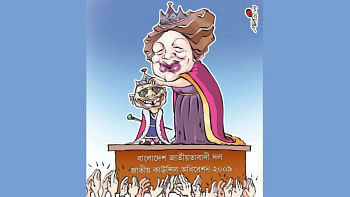WOMEN'S RIGHT TO POST-DIVORCE matrimonial compensation

We all are aware of the fact that our society has a prescribed set of stereotyped gender roles to the effect that men are the bread-earners and women are the caregivers. This prescription makes women dependent on men for their livelihood. This notion of stereotypical gender based roles has been undergoing a process of change over time; however it still is prevalent in our society. Despite having education and required skills for getting involved in income generating activities, many women have to opt for living as housewives to take care of children and in-laws.
During the continuation of marital relation, a wife may have double responsibilities of working outside as well as of taking care of the children and family members. However, given the fact stated in the preceding paragraph, it can be argued that women are in dire need of financial support after divorce. Women who have no earning capability or who have to give up on their jobs for remaining as housewives for a long time in husbands' house befall in great misery and financial crises after divorce which is thus mostly attributable to divorce itself. Ironically, at present, neither the personal laws nor the statutory laws in Bangladesh provide provision of awarding post-divorce maintenance or post-divorce matrimonial compensation, to the divorced women. Although, in the famous Hefzur Rahman v Shamsun Nahar Begum and another case (1995 15 BLD HCD 34), the High Court Division of the Supreme Court of Bangladesh paved the way for post divorce maintenance for Muslim women, the judgment was not sustained in appeal at the Appellate Division.
Hence, based on the contributions of husband and wives to the matrimonial property and wives' sacrifices made for the in-laws' family, the wives should be compensated by the husbands. The amount of compensation may vary depending upon the wives' education, health, remarriage, their monetary and non-monetary contribution to the family, children, ages, their ex-husbands' income and assets, etc. The purposes of awarding compensation are: to provide for the needs and the necessities of the wives after divorce, to assist wives to achieve self-sufficiency and to help out the wives to attain the capability of earning a livelihood which can enable them a standard of living equivalent to that enjoyed during the marriage.
We can import the USA's example in this regard. Though, their socio-economic condition is different from that of ours, we can nevertheless consider and analyse their laws. In the USA, the courts while dealing with the suits of post-divorce maintenance usually by and large take into account the following facts which are relevant for us in allowing appropriate compensation to divorced wives:
♦ the life-style and the way of living established throughout the course of marriage;
♦ the duration of the marriage and the age and physical as well as mental state of the wives;
♦ the financial resources of couples, the non-marital and the marital assets and liabilities;
♦ the contribution of wives to the marriage, including, but not limited to, services rendered in homemaking, child care, education, and career building of the husbands;
♦ the actual needs of wives and the present and future earning capacities of the same;
♦ any impairment and disability of the present and future earning capacity of the wives seeking compensation on account of those wives' devoting time to household duties or having forgone or delayed education, training, employment, or career opportunities due to the marriage;
♦ the time required to make possible for the wives seeking compensation, to obtain appropriate education, training, and employment
♦ contributions and services by the wives seeking compensation to the education and learning, profession and career, or career potential of the counterparts;
♦ any valid contract of the couples; and
♦ any other issues that the court thinks just and equitable.
Compensation may be a gross amount which may be awarded either as a lump sum amount or in a certain number of periodic installments. Wives may be awarded compensation on permanent basis, if they are employed only at a low income and there is less potentiality of achieving economic independence because of their lack of ability to maintain the standard of living achieved during the marriage.
Compensation may be given to the wives to support them throughout the course of divorce proceeding or for certain time required for their rehabilitation or permanently on the basis of particular case of each party.
The writers are researcher, Bangladesh Institute of Law and International Affairs (BILIA), and Assistant Professor of Law, University of Asia Pacific respectively.

 For all latest news, follow The Daily Star's Google News channel.
For all latest news, follow The Daily Star's Google News channel. 



Comments